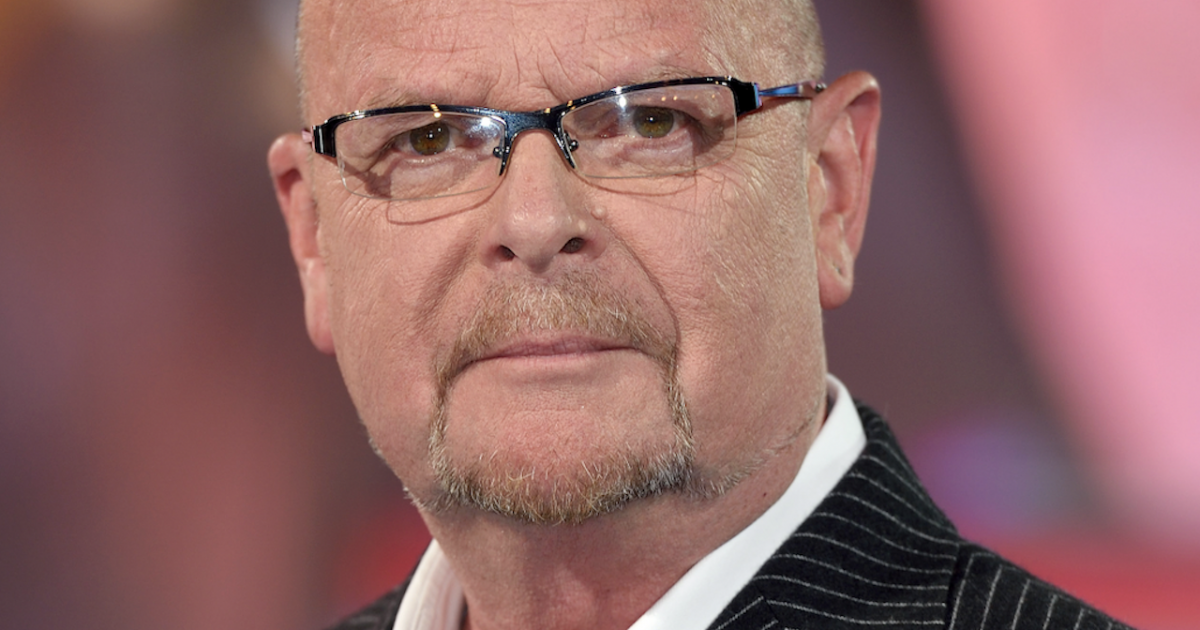Whale Shares Update Amid Kidney Cancer Journey
- James Whale, 71, beat kidney cancer twenty-two years ago after he was given mere months to live. He had surgery to remove his kidney. Two years ago, he learned his kidney cancer returned and it had spread. Whale recently gave an update on his condition.
- Kidney cancer can be treated with surgery, radiation, targeted therapy, immunotherapy, chemotherapy, or a combination of these different treatments.
- Symptoms of kidney cancer include: Blood in the urine, lower back pain, a lump on the back, fatigue, loss of appetite, unexplained weight loss, and fever.
Whale, who’s the host of the late-night series “The James Whale Radio Show” and is regarded as one of England’s leading radio broadcasters, recently gave an update on his cancer journey.
Read More
Whale also shared some reflections about life during the speech, saying, “I am in my 70s now and I just want to say don’t waste your time on stupid things that don’t matter…I’m 71, and I’ve had a great life.”
Whale spent thirteen years as a presenter on talkSPORT, and then worked on a drivetime show for four years. Now, he hosts on talkRADIO on News UK.
The radio host paid tribute to his friend Enam Ali MBE, who passed away in July 2022 from his own two-year battle with cancer.
James Whale’s Cancer Journey
Whale was first diagnosed with kidney cancer in 2000 at age 49. He was diagnosed again in 2020, and the cancer had already spread to his spine, his brain, kidney, and lung, reports The Sun.
Whale’s life was also touched by cancer when his previous wife, Melinda, was diagnosed with lung cancer and lost her battle with the disease in 2018. In October 2021, he wed his current wife, Nadine Talbot-Brown.

When Melinda was diagnosed, Whale said, “She is having treatment, and I can’t give up that last glimmer of hope.”
He continued, sharing, “But the doctors say I have to face facts…The thought of losing her is so painful, it is difficult to even contemplate.”
After his first cancer diagnosis in 2000, Whale had surgery during which his kidney was removed. He beat the disease for 20 years until it returned in 2020.
Who Gets Kidney Cancer?
Incidences of kidney cancer are most common in older people. The average of age of a person diagnosed with the disease is 64. And the majority of people diagnosed are between the ages of 65 and 74. (Whale was 69 when he was diagnosed in 2000.) It’s uncommon to be diagnosed with this disease if you’re under the age of 45.
According to the American Cancer Society (ACS), this year will see approximately 79,000 new cases of kidney cancer diagnosed. Men have nearly double the risk of kidney cancer compared to women, with approximately 50,000 kidney cancer cases occurring in men, and over 27,000 occurring in women.
This type of cancer occurs more frequently in the Black population, the Native American population, and Alaskan Natives.
According to the ACS, this cancer is among the 10 most common cancers in both men and women. The lifetime risk for developing kidney cancer in men is about 1 in 46 (2.02%), and the lifetime risk for women is about 1 in 80 (1.03%).
Inherited conditions can increase a person’s risk of kidney cancer. Kidney cancer affecting multiple generations of a family is called “hereditary kidney cancer.” According to Cancer.gov, hereditary kidney cancer is rare. It accounts for only 5% to 8% of all kidney cancers.
Cancer.gov outlines the four hereditary syndromes associated with kidney cancer as:
- von Hippel-Lindau disease (VHL).
- Hereditary leiomyomatosis and renal cell cancer (HLRCC).
- Birt-Hogg-Dubé syndrome (BHD).
- Hereditary papillary renal cancer (HPRC).
Treatments & Symptoms of Kidney Cancer
There are two main types of kidney cancer that occur in adults: Renal cell cancer and transitional cell cancer.
Kidney cancer can be treated with surgery, radiation, targeted therapy, immunotherapy, chemotherapy, or a combination of these different treatments. The treatment path may be dependent upon the stage of cancer at the time of diagnosis.
According to the ACS, signs and symptoms of kidney cancer can include the following:
- Blood in the urine (hematuria)
- Low back pain on one side (not caused by injury)
- A mass (lump) on the side or lower back
- Fatigue (tiredness)
- Loss of appetite
- Weight loss not caused by dieting
- Fever that is not caused by an infection and that doesn't go away
- Anemia (low red blood cell counts)
Coping with a Cancer Diagnosis
Whale revealed previously that he struggled after being diagnosed with cancer. He even considered harming himself, he once said.
Having a strong emotional reaction to a cancer diagnosis is very normal. Many people experience grief, anger, overwhelm, anxiety, and, in some cases, depression.
Dr. Scott Irwin, the Director of Supportive Care Services Cedars-Sinai, tells SurvivorNet in an earlier interview, “Depression is a really interesting topic, because a lot of people assume that, oh, they have cancer. They must be depressed. That’s actually not true. 85% of patients do not get what would be considered a clinical depression. 15% do.”
Dr. Iriwin emphasizes that it’s important to treat the depression, and to do so in the context of cancer. “For prescribing medications for depression in the context of cancer, I often try to choose medications with the lowest side effect profile.”
He explains why it’s important to consider the cancer diagnosis, too, when treating depression, saying, “If patients are getting hormonal therapy, there’s particular antidepressants that we can’t use, because they may lower the effectiveness of that hormonal therapy. And so we choose antidepressants that don’t impact the cancer care.”
It’s important to seek help if you’re having mental health struggles following your cancer diagnosis. A psychologist, therapist, or counselor can help you treat your mental health issues.
Treating Depression After a Cancer Diagnosis
Learn more about SurvivorNet's rigorous medical review process.


